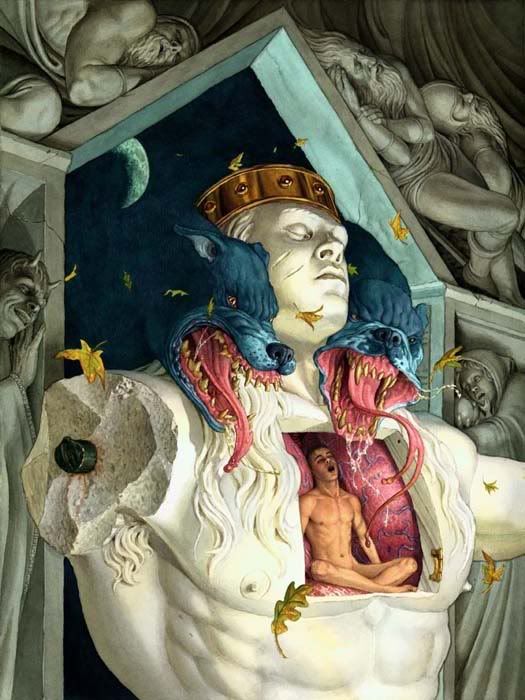
What is evil, what is good? One of the greatest Chinese Zen masters was asked by a disciple, "What should I do?" The master said, "I won't tell you what to do; my concern is that you see straight." This is why Buddhism is not just a matter of doing good and not doing evil; it is necessary to purify the mind.
The "Seven Buddhas" refers to specific individuals, but in general it is an expression representing enlightened people of antiquity or prehistory. The seventh of the Seven Buddhas was Shakyamuni Gautama Buddha, who is commonly considered the founder of Buddhism. Other accounts speak of twenty-four ancient Buddhas, or up to an unlimited number of Buddhas; the point of this is the idea that there is only one real truth, and that the enlightened are discoverers of truth, not founders of dogmatic religions.
According to ancient Buddhist literature, Shakyamuni himself denied that he had founded the religion. He likened himself to one who has discovered an ancient road leading to an ancient city. The road and the city were abandoned and overgrown by jungle, but the traces remained; leading others to the same discovery, Shakyamuni Buddha was able to "clear the road and restore the city." This symbolizes the restoration of the original knowledge of humanity, which has in a sense always existed, and is periodically rediscovered and recommunicated.
According to a most ancient teaching of Buddhism, the general precept of this original knowledge is to refrain from what is bad, to do what is good, and to purify the mind. Dõgen says, "We should contemplate this principle carefully" ---This should be given careful consideration in the context of the question of what human beings are doing on earth.
It may seem redundant to say that the Way of the Seven Buddhas must be like the Way of the Seven Buddhas, but this actually has a deep meaning: that is to say, just as the Seven Buddhas realized what was good and bad in their times, we too must find out what is good and bad in our times. And just as the Seven Buddhas purified their minds, we too must purify our minds. The Way of the Seven Buddhas does not mean talking about the Way of the Seven Buddhas; it must be like the Way of the Seven Buddhas. It must be expressed in the present, it must be a quality of the present being-time, so it must be "herein," which "conveys a message." The message is the living communication of the Way of the Seven Buddhas in the present.
"Unoriginated" means that "evil" does not come from itself, but exists only in contrast to "good" and "indeterminate." Since one implies the others, the attribution of evil depends on the attribution of good and indeterminacy; there is no set point of origin in objective reality.
Since there is no definite point of origin, there is no absolute in "evil," so the nature of evil is pure in the sense of being without fixed existence; and this "purity" or "emptiness" is its ultimately real characteristic.
Yet even though there is no absolute good or evil because "evil" is not evil of itself and "good" is not good of itself, nevertheless in the relative world phenomena are good, evil, or indeterminate, in their particular context.
What is the same about evils in different places and times is that they are evils, or considered evils, in their place and time. What is different about evils in different places and times is what is specifically evil or considered evil in each specific place and time.
"Evil" might be taken to mean the same thing as "considered to be evil," or it might be taken to mean objectively evil in the sense of militating against the real welfare of the living. These may or may not coincide. The saying of the Zen master quoted earlier, "I am only concerned that you see straight," refers to the actual ability to distinguish between what people want and what people need.
The "evil of the way" if when the way of the way in one time and place is taken to be the fixed way of the way for other, or all, times and places.
The "good of the way" is when the way the way is carried out is really effective in context.
The "indeterminacy of the way" is when there is a possibility of rising from an imitation way to a real way.
In Zen literature these aspects of the way are commonly spoken of in terms of the question of whether the branches are taken for the root, whether the root and branches are understood through each other, or whether one is on the brink of the possibility of connecting the root and branches.
~Classics of Buddhism and Zen, Thomas Cleary

{Programming by DPC}

